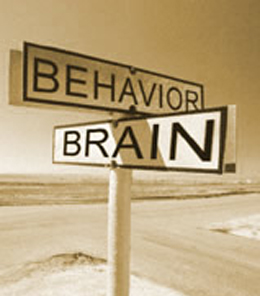Not everything that can happen will happen. This is a good thing to keep in mind when considering the range of issues that can afflict adolescents. It is also important to remember that because of chemical and hormonal imbalances, the difficulties of creating an identity, the sensitivities of adolescents, and the tensions between being cool to peers and respectful to parents, all teens are likely to—at least occasionally—behave in a way that their parents deem unacceptable.
But here, we’re not discussing a child who occasionally swears, breaks curfew, takes more ice cream than you said he or she could, or argues heatedly for more time with the family car. This article focuses on and provides an overview of the more concerning behavior problems that can afflict a teen.
What Is a Behavior Problem?
Although some people may casually lump all issues when teens act in a problematic way as “behavior problems,” it is actually useful to distinguish behavior problems from other types of issues. For example, a mental health issue may lead to problematic behaviors, but a mood disorder, like bipolar disorder, is not a “behavior problem” per se.
In addition, what appears to be a behavior problem may be caused by a different type of underlying issue—for example, substance abuse that arises out of an attempt to deal with a major depression. If this is the case, treating the behavior in isolation from its root cause will not be successful: the substance abuse and depression need to be addressed in tandem.
The role of an apparent behavior problem in signaling other issues may be more evident in a teen than in an adult. For example, an adult who can’t afford to lose his or her job may have the maturity, experience, and self-preservation instincts to hide his or her feelings about some practice or situation that seems entirely unfair in the workplace. A teen faced with the same situation or practice at school or at work and not having the same level of maturity may manifest his or her contempt or righteous indignation by his or her behavior, whether words or actions or facial expressions.
In addition, some types of problem seem to defy clear categorization. When one person does physical harm to another person or property, is it even without some other type of mental health issue? It’s difficult to say. Even the International Statistical Classification of Diseases and Related Health Problems, 10th Revision (ICD-10) groups “Mental and behavioral disorders” as a group. For these reasons, the list below does not attempt to be complete or to sort out all the issues of what is a behavior problem and what would be better classified in another way.
Some Behavior Problems that May Afflict Adolescents and Require Expert Help
• Teenagers are curious, and they may try substances that are illegal period or illegal for them to use at their age. If there is no other underlying cause, then substance abuse is a behavior problem.
• There are several behavior problems that the DSM-IV-TR (Diagnostic and Statistical Manual of Mental Disorders, 4th Edition, Text Revision) classifies under the heading Attention-deficit and disruptive behavior disorders. These include the following:
- Attention-Deficit Hyperactivity Disorder (AD/HD), which has four subtypes
- Conduct Disorder, which has three subtypes
- Oppositional Defiant Disorder
- Disruptive Behavior Disorder Not Otherwise Specified (NOS)
• The DSM-IV-TR also includes Antisocial behavior with two subtypes
• The ICD-10 classifies a group of “Behavioral syndromes,” that lists eating disorders—including anorexia nervosa, bulimia nervosa, overeating, and vomiting—are often linked to adolescence.
• The ICD-10 also lists “Behavioral and emotional disorders with onset usually occurring in childhood and adolescence.” The ones most closely tied to behavior include:
- Hyperkinetic disorders, of which Attention-deficit hyperactivity disorder is a subgroup
- Conduct disorders, which in the ICD-10 includes Oppositional defiant disorder
